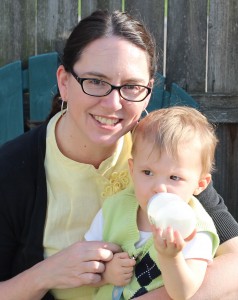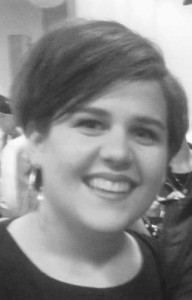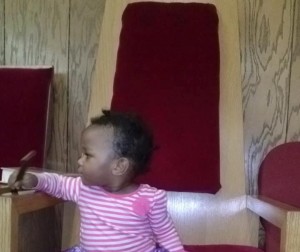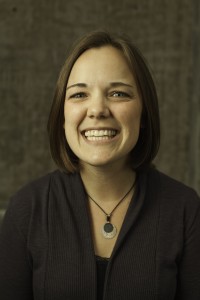 Brian Wiele is Lead Pastor at River Ridge Covenant Church in Olympia, Washington, and serves as Chair of the Commission for Biblical Gender Equality for the Evangelical Covenant Church, which exists to equip the church to articulate the truth about Biblical equality regarding gender; and to advocate for women in ministry and leadership in all possible venues within the church. The following was first posted at The Junia Project (click here to visit site). It is re-posted today with their permission.
Brian Wiele is Lead Pastor at River Ridge Covenant Church in Olympia, Washington, and serves as Chair of the Commission for Biblical Gender Equality for the Evangelical Covenant Church, which exists to equip the church to articulate the truth about Biblical equality regarding gender; and to advocate for women in ministry and leadership in all possible venues within the church. The following was first posted at The Junia Project (click here to visit site). It is re-posted today with their permission.
“… no one who drinks the old wine seems to want the new wine. ‘The old is just fine,’ they say.” Luke 5:39 NLT
You Drink What The Host Is Pouring
I’m not much of a wine drinker, and will admit to being a lousy judge of quality. But I do know that you drink what the host is pouring. To politely refuse what is provided is reasonably understandable. But to insist on being served a different blend – one that you prefer, and definitely aged longer – would be incredibly rude.
Yet that’s exactly what the church has done and continues to do to Jesus, the host of the table where believers sit which we commonly call the Kingdom of God.
A Familiar Parable
The parable from which Jesus’ statement comes is familiar fare. In response to a question about fasting, Jesus spoke of the folly of putting an unshrunk patch of cloth on an old garment. Carrying the illustration further, he added that new wine must be poured into new wineskins; the fermenting process of a new spirit would cause an old leather wineskin to break apart. Only in Luke’s version do we have his added statement about the tendency to reject the new wine over one that is well aged.
We’ve generally interpreted the parable to refer to religious actions such as fasting, Sabbath observances, or acceptable foods. But there are many ways in which Jesus was pouring a new spirit into the wineskin of his church. One of those areas has to do with power and position. Continue Reading »
 Danais is originally from Vieques, Puerto Rico. She currently studies Speech and Language Pathology at the graduate level. Her passions include linking the emerging research of the human microbiome and communicative disorders, as well as honoring God’s perfect design through gardening, creation care, and a great appreciation for whole foods. She recharges by hugging and kissing her toddler, spending time with her husband, reading, dancing and watching series on Netflix
Danais is originally from Vieques, Puerto Rico. She currently studies Speech and Language Pathology at the graduate level. Her passions include linking the emerging research of the human microbiome and communicative disorders, as well as honoring God’s perfect design through gardening, creation care, and a great appreciation for whole foods. She recharges by hugging and kissing her toddler, spending time with her husband, reading, dancing and watching series on Netflix Jo Ann Deasy is an ordained pastor in the Evangelical Covenant Church currently serving as a director at the Association of Theological Schools in Pittsburgh, PA. She came to faith in a Covenant Church plant in Northern California and is grateful for those who nurtured a call to ministry in her as a new believer. She has served as a youth intern, a Minister of Christian Education, a Dean of Students, and most recently as a solo pastor.
Jo Ann Deasy is an ordained pastor in the Evangelical Covenant Church currently serving as a director at the Association of Theological Schools in Pittsburgh, PA. She came to faith in a Covenant Church plant in Northern California and is grateful for those who nurtured a call to ministry in her as a new believer. She has served as a youth intern, a Minister of Christian Education, a Dean of Students, and most recently as a solo pastor. Mandi Cherico is a second year M.Div student at North Park Theological Seminary in Chicago, IL. Raised in the Twin Cities, her interests include feminism, word-care, aesthetics, and Beyonce. The following post is a manuscript of a sermon preached at North Park Theological Seminary Chapel on September 15, 2014.
Mandi Cherico is a second year M.Div student at North Park Theological Seminary in Chicago, IL. Raised in the Twin Cities, her interests include feminism, word-care, aesthetics, and Beyonce. The following post is a manuscript of a sermon preached at North Park Theological Seminary Chapel on September 15, 2014.
 Rev. Kelsey Rorem is Ordained to Word and Sacrament in the ECC. She currently serves as the Program Manager in the Center for Biblical and Theological Education at Seattle Pacific University, where among other things she oversees the Murdock Discipleship Fellows, Community Bible Study, and the Women in Ministry initiatives of the School of Theology. She is an avid fan of the Kansas Jayhawks, and is in total denial that this beautiful Seattle summer is ever going to end.
Rev. Kelsey Rorem is Ordained to Word and Sacrament in the ECC. She currently serves as the Program Manager in the Center for Biblical and Theological Education at Seattle Pacific University, where among other things she oversees the Murdock Discipleship Fellows, Community Bible Study, and the Women in Ministry initiatives of the School of Theology. She is an avid fan of the Kansas Jayhawks, and is in total denial that this beautiful Seattle summer is ever going to end.

Book Review – Women in the Church: A Biblical Theology of Women in Ministry
Filed under: Book & Commentary
Submitted by:
Dru McLeland
I am currently following God’s call in the footsteps of my great grandmother, Drusilla, who was a traveling evangelist in the Methodist Episcopal Church, my father, Paul, and my Aunt Dorothy who were ordained ministers and my mother who was a Bible teacher and speaker, all in the Free Methodist Church. Currently, I am a full-time student at Northern Theological Seminary in Lombard, IL pursuing a Master of Divinity degree with emphasis in worship and spirituality. I spent an exciting summer completing my clinical pastoral education requirements in the ACPE program of the Adventist Midwest Health hospital system.
One of the things that drew me to the Evangelical Covenant Church is the affirmation of “both men and women as ordained ministers and at every level of leadership” informed by the word of God” (“Covenant Affirmations” found here.) There is a long history of women in pastoral ministry in my family and denomination of origin. I am surprised by God’s call to ministry on my own life, but not because I am a woman. However, as I experienced and witnessed gender-based resistance from others concerning God’s call, I realized my own need for better understanding of this call. In light of this, I look for books that might be helpful.
Report This Post